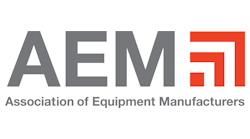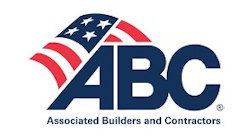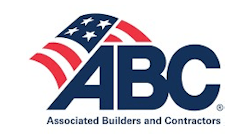We’re talking about compacts, those wonderful operating machines that do the job that the big stuff can’t. And it’s precisely because they’re small, dense, solid, firmly built, and dependable that they’re so sought-after.
It’s interesting to hear contractors speak of these machines the same way Marilyn Monroe sang “Diamonds Are a Girl’s Best Friend”—Cartier! Tiffany! Van Clef & Arpel! Talk to me, Harry Winston!
But for this men’s chorus, it’s Caterpillar! Takeuchi! Kubota! Volvo! Talk to me, John Deere!
This is a story of guys who love the tools of their trade. And who can blame them?
These machines, after all, are finely tuned and well-crafted pieces that can make the earth move. These are the tools that small businesses love because they are maneuverable and low-maintenance.
So the size is defined for a lot of different machines that have a lot of different functions: four-wheel-drive loaders, articulated dump trucks, backhoe loaders, compact excavators, crawler dozers, crawler loaders, excavators, landscape loaders, motor graders, skid-steers, tool carriers, and waste handlers. But a clear and constant theme runs through this, and that’s brand loyalty. In the end, it’s the service that fuels the passion.
Take Jay Cates, a contractor in Stillwater, MI. The 43-year-old Cates has been working in his family’s contracting business since he was a college student at the University of Minnesota. “I love my Bobcat,” he has been heard to say. “My Bobcat skid-steer is what I mainly use in my line of work. I’m a general contractor, which means I’m building new homes and doing major remodeling contracts.”
Cates bought his first Bobcat because the brand was so well-known for skid-steers, and that’s what his excavator was using. But he kept working with Bobcat for several other reasons.
“The skid-steer is so versatile year-round. And in Minnesota we’ve got different weather systems. So when we go to mud and dirt and frozen snow on the ground, I have tracks that go over my tires. They’re polycarbide tracks of steel, and if I’m going to be in sand or mud, I won’t sink,” he says.
His current model, he says, is the Bobcat S-185, which he’s been using since the summer of 2002.
But the big-brand compacts aren’t the only ones favored by contractors.
There’s a small outfit known as Compact Power Inc. (CPI), based in Fort Mill, SC. Roger Braswell, chief executive officer and founder, talks about how his company grew. “I spent most of my life as a contractor,” Braswell says. So he knew from experience what machines were good for what jobs. What he wanted to build was basically one-stop shopping, a place where contractors could get exactly what they wanted. That meant providing them with parts that were not usually found on compacts they wanted.
Braswell introduced the Australian-made Dingo Digging System to the United States in 1995 and sold it a couple of years later. He then founded another business, which sold compact equipment. Finally, in 2003, he created CPI, which has created a niche market in the smaller heavy equipment.
In addition, CPI has a sweet deal with Home Depot.
“We have exclusive distribution to Home Depot tool rental,” says Braswell. “My company sold it to them, and we do the service.”
But the main compact business is through CPI’s subsidiary, Mertz Manufacturing, which has developed a following with plenty of contractors.
Jim Brickett of Charlotte, NC, is one. Actually, he’s a subcontractor who works for Moisture Loc, an outfit that specializes in waterproofing throughout the Carolinas. “Our business does waterproofing and concrete construction,” says the 30-year-old Brickett, who talks about the CPI Boxer 427.
“It does well for our particular business, and it does what we want it to do. It’s very responsive, dependable, agile, and strong. And most important, it gets where we want it to,” Brickett says. “Compact Power has worked out extremely well for us. Our equipment has to run twenty-four and seven, and Boxer Equipment provides that service and our maintenance needs. They give us good service.”
Testimonials don’t get any better than that, but note that Brickett emphasizes the service.
A little farther south, Ronnie Puckett of Jefferson, GA, sings the praises of Takeuchi, the Japanese company that set up shop in the US in 1979.
Takeuchi claims that it was the first company to introduce compact excavators in North America. Little wonder then that they have become the main product line in the US for the big Japanese company.
Puckett, 40, has his own business, Mountain View Grading, 30 miles north of Atlanta, which he established in 1992.“I do a little bit of everything from grading lots for houses, digging basements, cutting out for driveways, construction for new homes,” says Puckett, who’s been in the grading end for 20 years.
“I’m in business by myself, a one-man operation, but I’ve got three Takeuchi machines: a 130, a 140, and the 150,” he explains. “Each one has a different function. Even though you’re absolutely doing the same with all three, the main difference is the size. I use the 150 and 140 for digging basements, and then I use the 130 getting ready for landscaping.”
But here’s the Takeuchi-faithful statement.
“If you could take one machine to heaven, I guess I’d take the 140. I probably run it more than the other two. It’s the nature of the jobs. People keep building the houses closer and closer, and the 140 allows me to maneuver better between houses,” he says. “But the other thing I like about the Takeuchi is the rubber tracks rather than tires. I’ve been working when the weather was bad, when everybody else was sitting home. This machine is a good workhorse. It’s a mudder, and I like it like that.”
On the other side of the continent, a couple of California contractors swear by their Volvos. The Swedish equipment maker has a large line of compacts: excavators, skid-steers, and backhoe loaders.
Contractor Chris Manzuk has his own business, C. Manzuk Enterprises, located in Jamul, CA, in San Diego County. Manzuk, 44, started his own business three years ago and does demolition, wide excavation, trenching, and grading.
“I like my compact excavator. That’s my favorite,” says Manzuk, who walked away from a 20-year career in the biotech industry. Talk about a career change. His brother-in-law was in the construction business, and over time Manzuk ended up working on the side for him. But the corporate mentality drove him out the door.
“The last company I was with had gotten very large and very corporate, and I was tired of the silliness. What people were focused on was not something that interested me,” Manzuk says.
So he resigned in July 2004, went to a trucking school and got his commercial driver’s license. Then he bought a 10-wheel dump truck, and he was in business. His wife Lisa does the books. “I couldn’t have done it without her support. We started a little family company,” he says.
Business expanded when he bought a skid-steer; last year he got the excavator.
“My favorite is the excavator. It’s versatile; it’s compact,” he says. “I was doing residential backyard construction. I needed something to get myself into the classic California backyard but needed something powerful enough to demolish houses. So I’ve used the ECR 38 excavator to demolish entire homes. It’s got enough power and reach so I can reach a 10-wheel dump truck or a 40-yard Dumpster, the large one,” Manzuk says.
How did he get to use Volvo in the first place?
“My brother-in-law had a Volvo excavator,” he says. “I was impressed with the machine and then impressed with their service. The Volvo service is outstanding. I call, give them an hour’s notice, pull in, and they jump on it. I just don’t get that kind of support with the other equipment I have. I can’t speak highly enough of Matthews Machinery, the Volvo dealers.”
On a smaller and younger scale, Kyle Scott is a landscape contractor in Murrieta, CA, which is an hour north of San Diego. Pacific Designs is the company he and a friend started in June 2006.
“I’ve been doing this for a long time, since I was 10 or 12,” says the 22-year-old Scott. “I kind of fell into landscaping doing lawn jobs. People start having small projects, and then the projects got bigger.” That’s when he started his own little company to put in small backyards. At 20 he started working for a big contractor. But he didn’t like the operation and decided to go back out on his own.
He’s only got a few pieces of equipment, but the uses his Volvo skid-steer MC 110 for everything. “I have all the attachments for it and use it for everything: trenching, digging foundations, and rototilling for big, expansive lawns,” Scott says.
And what prompted him to go with Volvo?
“They’re known for their quality.” he says. “But all equipment has setbacks and pluses. Things break, of course. But it’s who you’re dealing with that keeps you there.”
At this point, Scott has nine men working for him, and as a startup business, he can’t afford any downtime with the machinery. “The machine runs all day,” he says. “The tractors are built to run cool, so all that’s overheating is the workers. That’s the only thing that gives out!”
Back in the Midwest, there are a lot of Caterpillar users. Little wonder, since the big machine maker is based in Peoria, IL. Tom Manning, 50, is one who touts the praises of Caterpillar.
Manning Concrete has been in business since 1981 in Huntley, about 45 miles northwest of Chicago. “The business is about 60% residential and 40% industrial,” Manning says. “We pour walls and do flat work, like surfaces, sidewalks, and driveways. These days I’ve got 400 employees, but it started with me and my buddy, a wheelbarrow, and a pickup truck.”
That’s a lot of growth in 26 years, and Manning credits the growth in the Chicago area.“There’s been a lot of opportunity in the Chicago area, and when opportunities presented themselves, we were able to keep up,” he says. “We’ve gone primarily to Cat equipment now—skid-steers and the small backhoe equipment. The Cat equipment has served us the best. It’s easy for our operators to use. It’s got durability, and Caterpillar is awfully good with maintenance.”
Once again, the service is key for Manning, who’s got about 30 skid-steers. He’s doing business year-round, whether it’s construction or snow removal. “The equipment starts well in cold-weather conditions and gives us the least amount of headaches,” he says. “The machines and the service are reliable.”
The same praises are sung in St. Augustine, FL, where there’s definitely no snow and no cold-weather conditions. Steven Stratton, 35, has had his own business for 15 years. Steven Stratton Inc. is a grading business and does house slabs, parking lots, and the like.
“There’s pretty much nothing that we don’t do with dirt,” Stratton says. “The St. Augustine area has grown significantly. Thirteen years ago it grew at a moderate pace. Now it’s out of control. And people are arriving here every day to work.”
Stratton uses his Caterpillar machines a lot, including multiterrain loaders. “We’ve got six of those, and that’s the primary equipment we use. They operate in tight places with a lot of power, and the reason I like Caterpillar so much is that [its equipment is] very smooth-running. But the service is everything. All equipment has downtime, but the deal is how fast the equipment can come back,” he says.
While there’s no snow, Florida does have its rainy season. The Cat machines can handle that. “We have our rainy season, but it’s no big deal since we’ve got closed cabs with air conditioning. And you can find a lot more people who want to run an air-conditioned tractor than anything else,” Stratton says.
Then there’s Steve Klein, 35, an employee of Stuart’s Landscaping and Nursery in Fond du Lac, WI. And what does he love? His John Deere skid-steer loader and mini excavator.
Brand loyalty began when Klein was just a little boy. “It’s personal loyalty with John Deere,” he says. “My family has had John Deere on our family farm since I was a kid. And my boss has had a John Deere since he started his business, starting with a lawn mower to a mini excavator.”
Then Klein explains the mechanics of his machinery, such as the skid-steer loader having a great weight-life capacity. “You can get into small areas and still move large objects, such as brick or concrete block. You can switch implements on the machine, such as forks and buckets to do different applications, whether it’s moving soil or digging in soil. Then there’s the mini excavator. It’s a compact unit, but you can do some deep digging. It keeps the job site clean because it does precise digging, unlike working with a tractor or a skid loader,” he says.
Klein explains that the excavator weights about 8,000 pounds. It’s still small enough to use a three-quarter-ton pickup truck to haul it around, though.
“I love the durability and the attention of the detail in the machines, as well as the comfort and safety features. We use the skid loaders year-round, including loading snow and grooming sidewalks in the winter,” he says.
The equipment company’s history started with a blacksmith named John Deere from Grand Detour, IL, who forged a business to make plows. The business was successful, and when he incorporated Deere & Co., he moved it to Moline, which is still the company headquarters.
From its modest Midwest beginnings, John Deere is now worldwide, with manufacturing plants from South Africa to New Zealand. Of course, it has gone far beyond producing only farm equipment. It makes construction equipment and forestry equipment, too.
Last year, John Deere’s total equipment sales and revenues were $21 billion. Of those, construction and forestry equipment sales and revenues were $5.8 billion.
Although compact equipment may fall into one easy category, the makers include a wide range of companies, small and large, national and international. But no matter what the size, they all seem to be making a lot of money.
A grand example is another Illinois company, Caterpillar, a leading manufacturer of construction and mining equipment. The Peoria-based firm produces more than 300 models. Established in 1925, Caterpillar 2006 sales and revenues were $41.5 billion.
Small by comparison is CPI. Even though it’s a new kid on the block, its focus is to build what customers want. The company is partially owned by Caterpillar, says Braswell. Despite being a small startup firm, CPI has 500 employees and a manufacturing plant in Ponca City, OK.
Bobcat has its headquarters in Fargo, ND, and has 2,600 employees and a big network of dealers. The company was founded in 1958 and is probably best known for producing the skid-steer loader.
Owned by Ingersoll Rand since 1995, Bobcat’s annual sales are folded into the company’s sales figures. Formed in 1871, Ingersoll Rand’s 2005 global net revenues were reported at $10.5 billion.
Volvo, the Swedish automobile maker, has branched out to include Volvo Construction Equipment. The North American branch is based in Asheville, NC.
The North American branch had sales of $1.4 billion last year. Volvo has just expanded its operations by acquiring the Ingersoll Rand road machinery group.
Takeuchi Manufacturing, the Japanese firm, created its American headquarters in 1979, basing itself in Atlanta. Best known for making compact excavators in 1971, the company also introduced the first compact trackloader in 1995. Established in 1963 in Nagano, Japan, Takeuchi reported net profits for 2005 at $28.2 million.
Beyond brand loyalty, there’s another common theme that emerges from the compact machinery—these little guys pack a punch and they generate a lot of profit. Punchy and profitable—quite a combo.








